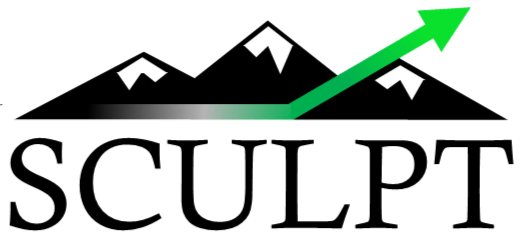10 Tips to Enhance Your Local SEO Presence for Better Visibility and Sales
In today's increasingly digitalized world, having a strong local online presence is vital for small and medium-sized businesses. With consumers turning to search engines like Google for information on local products, services, and businesses, local SEO has become a primary tool for boosting visibility, targeting nearby customers, and driving sales.
Effectively leveraging local SEO techniques can help businesses rank higher in search engine results pages (SERPs), enabling them to capture more local market share and stay ahead of the competition.
In this blog post, we'll share ten essential tips designed to optimize your local SEO efforts and improve your business's online presence. By following these proven techniques, you'll not only attract more local customers but also convert them into loyal patrons of your brand. Let's get started on your journey toward dominating your local market and experiencing unprecedented business growth!
1. Optimize Your Google My Business Listing
Claiming and optimizing your Google My Business (GMB) listing is the first crucial step in improving your local SEO presence. GMB listings provide relevant information about your business, such as location, hours, and contact details, that appear in Google Search and Maps. To optimize your GMB listing:
- Verify your business listing to ensure accurate and up-to-date information.
- Fill out all necessary details, including business categories, phone numbers, website, and hours of operation.
- Upload high-quality images of your business, products, or services.
- Encourage customers to leave reviews and respond to them in a timely and professional manner.
2. Focus on Local Citations and Business Directories
Local citations and business directories are vital components of local SEO. They help search engines understand and verify your business information, leading to improved rankings in local search results. To build and manage your citations, consider the following tips:
- Claim and update your business listings across popular online directories, like Yelp, YellowPages, and Foursquare, ensuring consistent business information.
- Utilize tools like Moz Local or BrightLocal to identify and manage your local citations.
- Monitor your listings and maintain accurate, up-to-date information to avoid duplicates or errors.
3. Optimize On-Page SEO for Local Keywords
Optimizing your website with locally focused keywords helps search engines understand your geographic relevance. Targeting these keywords increases your chances of appearing in local search results. Implement these on-page SEO best practices:
- Include location-specific keywords on your website's title tags, meta descriptions, and header tags.
- Incorporate localized keywords naturally throughout your website content.
- Create location-specific pages for multiple business locations or service areas.
4. Acquire High-Quality, Local Backlinks
Backlinks from relevant, authoritative local sources can do wonders for your local SEO efforts. The more high-quality, local links pointing to your site, the more credible and relevant your business appears in the eyes of search engines. Strategies for acquiring local backlinks include:
- Networking with local influencers or bloggers to secure guest posting opportunities or mentions.
- Sponsoring or participating in local events and organizations.
- Offering expert insights, interviews, or quotes to local media outlets.
5. Generate and Manage Customer Reviews
Online reviews play a significant role in your local SEO strategy. According to Moz,
customer reviews accounted for 13.7% of how Google ranked local search results in 2021. To generate and manage your customer reviews:
- Ask satisfied customers to leave reviews on platforms like Google, Facebook, and Yelp.
- Respond professionally and promptly to all reviews, both positive and negative.
- Share positive reviews on your website and social media channels to build credibility.
6. Optimize for Mobile and Voice Search
With the increasing adoption of mobile and voice-assisted devices, optimizing your website for mobile and voice search is imperative for local SEO success. To ensure a user-friendly experience across devices:
- Implement responsive web design to accommodate various screen sizes and resolutions.
- Use conversational, natural language for your on-page content, as voice searches tend to utilize long-tail keywords and phrases.
- Ensure your website loads quickly, as page speed is a critical factor for mobile search rankings.
7. Create High-Quality Local Content
Publishing high-quality, locally-relevant content on your website not only engages your audience but also solidifies your online authority within your region. To create captivating local content:
- Develop blog posts or articles centered around local news, events, or trends.
- Showcase your expertise through helpful, localized guides or resources.
- Share stories that highlight your community involvement or partnership with other local businesses.
8. Utilize Structured Data Markup
Structured data markup, also known as schema markup, is a code format that helps search engines better understand and display your website's content. Incorporating structured data on your site can lead to enhanced search result listings, such as rich snippets or knowledge panels. To leverage structured data for local SEO:
- Use schema.org’s
Local Business vocabulary to mark up relevant information, such as business name, address, phone number, and business hours.
- Test your markup implementation with Google's Structured Data Testing Tool.
- Stay up-to-date with Google's guidelines on implementing structured data markup to avoid potential penalties.
9. Monitor and Analyze Your Local SEO Performance
Track and analyze your local SEO efforts to identify areas for improvement and ensure your strategy is effective. Utilize tools such as Google Analytics, Google Search Console, and third-party platforms like Moz or Ahrefs to monitor your website's performance, organic traffic, and local search rankings. Review this data regularly and adjust your strategy as necessary.
10. Engage with Your Community on Social Media
While not a direct ranking factor, having an active social media presence helps build your credibility and overall brand recognition within your community. Engage with local customers and relevant groups or pages on platforms like Facebook, Twitter, and LinkedIn. Share local news, events, or promotions and respond to questions and comments to foster positive relationships with your audience. This will further support your local SEO efforts and help you stand out among the competition.
Take Your Local SEO Strategy to New Heights with Sculpt Digital Marketing and Consulting
Implementing these ten essential local SEO techniques can significantly improve your business's online presence, attract local customers, and drive sales. However, mastering local SEO can be challenging, time-consuming, and require ongoing adjustment and monitoring.
Sculpt Digital Marketing and Consulting is committed to helping businesses optimize their local SEO efforts for maximum impact. Our expert team will work closely with you to develop a customized local SEO strategy that aligns with your unique needs, goals, and target market.
Reach out to our
best digital marketing experts today to find out how our tailored approach can elevate your online visibility, attract more local customers, and boost your bottom line. Let us help you dominate your local market and experience unparalleled business growth with a robust, results-driven local SEO strategy!










